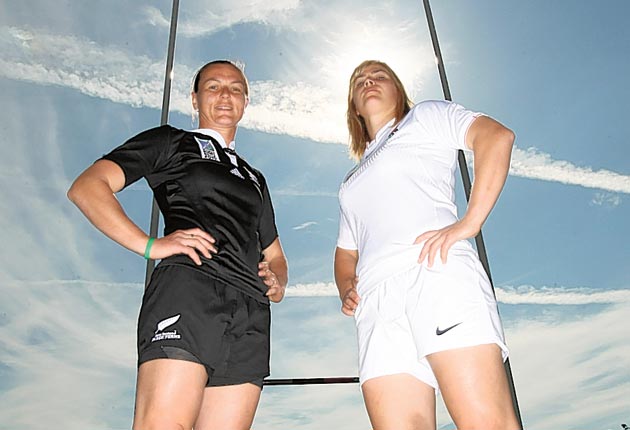England must front up to have final say against the Black Ferns

Your support helps us to tell the story
From reproductive rights to climate change to Big Tech, The Independent is on the ground when the story is developing. Whether it's investigating the financials of Elon Musk's pro-Trump PAC or producing our latest documentary, 'The A Word', which shines a light on the American women fighting for reproductive rights, we know how important it is to parse out the facts from the messaging.
At such a critical moment in US history, we need reporters on the ground. Your donation allows us to keep sending journalists to speak to both sides of the story.
The Independent is trusted by Americans across the entire political spectrum. And unlike many other quality news outlets, we choose not to lock Americans out of our reporting and analysis with paywalls. We believe quality journalism should be available to everyone, paid for by those who can afford it.
Your support makes all the difference.There is no more formidable team in the whole of women's sport than the Black Ferns of New Zealand, who take on England in the World Cup final at the Stoop, home of Harlequins, tomorrow evening.
They have lost only once in global tournament rugby, to the United States, narrowly, in the inaugural competition 19 years ago; they are currently averaging around 43 points a game; and in the front-row forward Doris Taufateau, they have a prop who outweighs some of the Premiership's finest. She also plays for a team called the College Rifles, which makes it all the more worrying somehow.
England, led by the admirably single-minded No 8 Catherine Spencer, found a way of beating the New Zealanders last time out, on a wet evening at Twickenham last autumn, and if their defence is as mean tomorrow as it has been to date – they have conceded a paltry 10 points in four outings, all of them in the same game against America – a more meaningful victory will not be out of the question. But the Ferns go in as favourites, just as their All Black compatriots will attract most of the smart money this time next year. When it comes to attacking rugby, New Zealand's women are as far ahead of the field as its men.
"I'd say from a strike-out point of view that they have a little bit more than England across the field," said the Australian coach John Manenti, whose side were beaten 32-5 by the New Zealanders in the pool stage and then went down 15-0 to the hosts in a highly competitive semi-final. "But England are pretty strong up front – they have a wrecking ball of a player in Maggie Alphonsi [the flanker from London Saracens)] – and I reckon they could get some pay from taking the Ferns on up front."
That notion will not have been lost on the England camp, who know they cannot afford to play fast and loose with the reigning champions. "The Black Ferns play the game the same way as the New Zealand men – they're physical and they do things at pace," said Alphonsi. "The reason we beat them in November is that we were just as physical. We need to step up the intensity now. Our set-piece is always important to us and our defence has been brilliant. If we can just improve a little in those areas, we'll be tough to beat."
Even so, the Black Fern backs appear to have all the answers to all the questions. The wing Carla Hohepa has been scoring tries for fun – six in four games, including a hat-trick against South Africa – while the outside-half Kelly Brazier and the centre Huriana Manuel have also touched down with alarming regularity. According to their coach, Brian Evans, the justification from women's rugby at international level is there for all to see.
"Some of our back-line tries have been pretty stunning," he said. "A team can fall over at any time and this tournament isn't won yet, but you'd go a long way in men's rugby, as well as in the women's game, to see scores like that. The danger is that it leads us to push things when we don't need to push them: it's tempting when you play like this to keep throwing the ball around. The important thing is to balance it out and make sure we look after our possession – to keep the pressure on and not loosen up. But the girls are looking at this themselves; I don't have to do that much."
Join our commenting forum
Join thought-provoking conversations, follow other Independent readers and see their replies
Comments